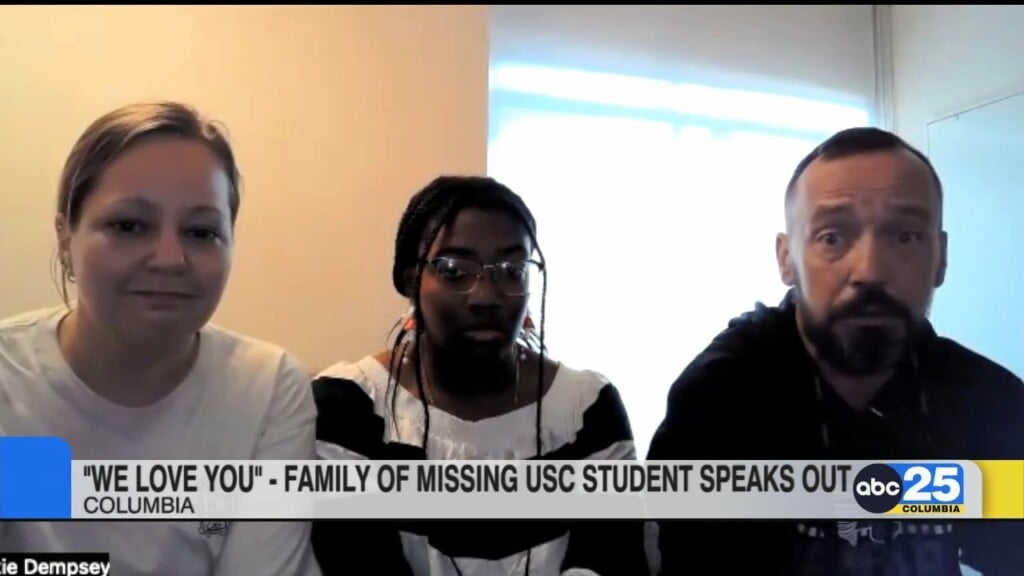SC’s week of legislative action
COLUMBIA, S.C. (AP) — The 14th week of the legislative session:
___
PUBLIC SCHOOL CHOICE: A South Carolina bill that expands students’ educational options within public schools advanced Wednesday to a Senate committee. Under the bill, school districts by 2014-15 would have to offer students at all grade levels at least one additional choice beyond the school they are zoned to attend. Options could include single-gender, Montessori and language-immersion programs, as well as magnet and charter schools. It also allows students to attend any school regardless of attendance lines, even outside of their district, at no cost. However, the bill allows officials to turn down a transfer application if a school is at capacity, and to limit the number of yearly transfers from another attendance zone to 3 percent of a school’s population. Former Democratic Superintendent Jim Rex pushed for the bill in 2007. But former Gov. Mark Sanford vetoed the measure because it didn’t include helping parents pay for private school tuition, and the House upheld the veto. Options have expanded without the law, but as Rex noted years ago, many districts need the legal push.
___
SC BUDGET: As state senators prepare to tweak the House spending plan, a powerful lawmaker said he wants to keep in $180 million for deepening the Charleston Harbor, and some Democrats said they will push to raise the pay of state workers and provide more money for local governments. The Senate Finance Committee heard presentations Tuesday from state economic and budget officers about the House plan for 2012-13. Committee Chairman Hugh Leatherman, R-Florence, said the ports drive the state’s economy, and deepening the harbor is “very much a priority.” The designation represents the full state match of the expected $300 million project. Sen. Darrell Jackson, D-Columbia, said he will fight to give state workers a 4 percent pay increase — up from the 2 percent approved in the House plan for most employees. Other senators said the state needs to send local governments the full amount that state law requires, which would require an additional $71 million.
___
WEALTHY INVESTORS: A bill designed to encourage millionaires to invest in South Carolina’s fledgling small businesses advanced Thursday to a Senate committee. The measure approved unanimously by a Senate Finance panel would allow so-called “angel investors” to claim up to 35 percent of their investment as a credit on their state income taxes. Each investor could claim credits of up to $100,000 a year, and the loss to the state is capped at $5 million yearly. Supporters say the bill encourages the wealthy to make investments into businesses that are too risky for banks and venture capital firms but could become job creation factories with some needed startup cash. “Angel investors” is a term defined by the federal Securities and Exchange Commission. Nearly two dozen states already give such tax credits, including neighboring Georgia and North Carolina. The House passed the bill last April.
___
ERASING CRIMINAL RECORDS: Legislators are working on a bill to erase nonviolent felonies from the records of now-upstanding citizens in hopes of helping them secure jobs. Sen. Vincent Sheheen said Thursday the goal is to remove the criminal label that makes a successful career difficult for those who made a mistake and have since turned their lives around. The Camden Democrat said the state needs those people working and paying taxes. The state already allows people convicted of a misdemeanor to have the charge expunged. The bill is meant to provide a path for those convicted of low-level felonies, such as shoplifting, receiving stolen goods, property damage and non-trafficking drug charges. Under the bill, only ex-cons who have received a pardon from the state could apply. Sheheen heard from representatives of law enforcement, crime victims and prosecutors to help his subcommittee tweak a bill the House approved unanimously last April. They want the bill to require someone’s record be clear for at least 10 years to qualify.
___
ETHICS INVESTIGATION: A bill removing some secrecy surrounding legislators’ investigations into their colleagues was introduced Wednesday by Senate Democrats in the midst of a possible inquiry into Republican Gov. Nikki Haley. Currently, House and Senate ethics committees investigate complaints against their current or former members, and proceedings are secret unless they decide to publicly vote to reprimand their own — which happens rarely. The Senate measure would make the committees’ investigations subject to the state’s public records law once legislative members determine a complaint has merit. All records would remain confidential until a committee determines probable cause exists. Last month, a circuit judge dismissed a lawsuit accusing Haley of breaking ethics laws while she was a legislator, saying such issues should be handled elsewhere. Whether the House Ethics Committee is investigating is unknown. State law bars even the acknowledgement that an inquiry exists, and Haley has declined to waive confidentiality.
___
ETHICS-TIME LIMITS: A Senate Judiciary subcommittee on Wednesday advanced a bill that would increase the amount of time that state ethics investigators have to prosecute public officials. The proposal would extend the time for ethics investigations to three years after an elected official leaves office. Current law limits investigations to four years after the alleged offense. The panel also approved an amendment from Republican Sen. Chip Campsen that would use whichever time period is longer, giving ethics officials the maximum amount of time to pursue a case.

